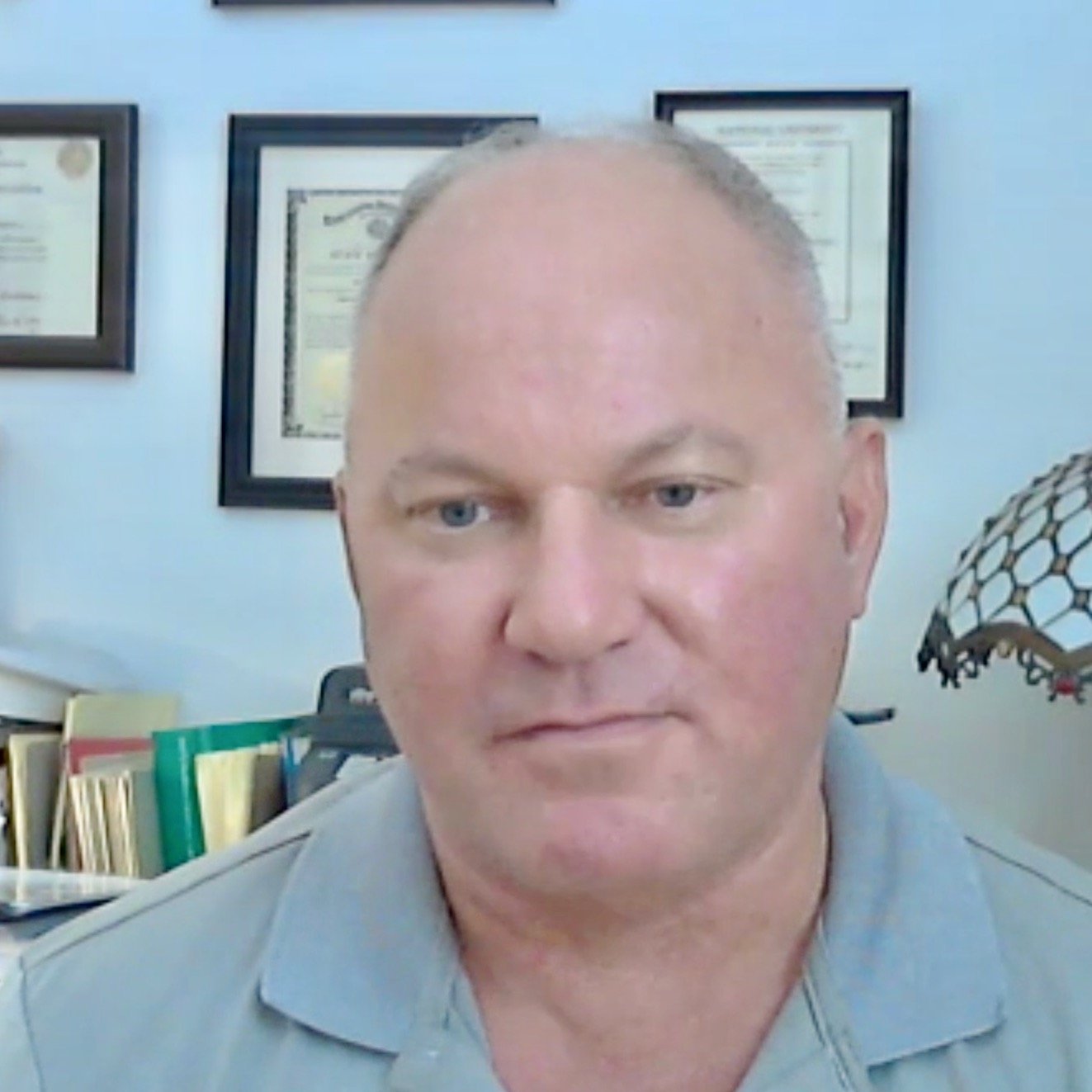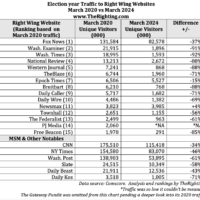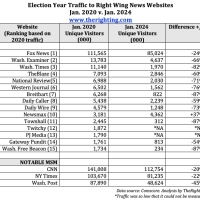
TheRighting Q&A with Right-Wing Extremist Watchdog Ron Filipkowski
By Jacob Gries, August 18, 2022
Ron Filipkowski wasn’t really born into the world of politics. But during an overseas stint in the Marine Corps in the late 80s, he became attracted to the Republican party’s age-old brand of rugged individualism.
After returning to his home state of Florida, he became active in the Republican party’s operations in his home state of Florida and eventually served as the general counsel for the Republican party of Sarasota. Everything was going according to plan until 2016, when Donald Trump stuck a proverbial fork in the road of his life and all but forced him down a different path.
If you told the Ron Filipkowski of the 1990s and 2000s that he would one day defect from his party and start up a public campaign to help liberal, left-leaning politicians and thought-leaders verbally joust against their counterparts, he’d probably look at you sideways. But since joining Twitter in August 2020, he’s been doing exactly that: exposing the modern-day Republican party’s hypocrisy, idiocy, and maliciousness. In fact, he’s become one of the most prolific and coherent voices in the Twitterverse (@RonFilipkowski) dedicated to exposing the threat of right-wing extremism to democracy. Next Tuesday, Filipkowski expands his influential digital footprint with the launch of his podcast Context with Ron Filipkowski.
Earlier this month, Filipkowski talked to me about his mission to expose the Republican party’s hypocrisy and maliciousness. He had some choice words about Gov. DeSantis. The interview has been lightly edited for length and clarity.
What does a day in the life of Ron Filipkowski look like?
What I do is I track the Republican messaging, and watch how it starts. In other words, some influencer or podcaster, or somebody somewhere will come up with something, and I’ll watch how that germinates and spreads, whether it’s a doctored video or a clip or a policy, and I’ll watch some Republican politician sort of pick up on it. So I’ll start to make people aware of it and I’ll present the counter-arguments, because there are a lot of members of Congress, and of the media, who follow me on Twitter.
Have you noticed that things trickle up more than maybe people would expect?
Republican politicians right now are following the base, rather than the other way around. I mean, CRT (Critical Race Theory) is a perfect example: that started with Chris Rufo who’s just an activist – he held a conference a year-and-a-half ago where he talked about it, and about how he’s going to use it to take apart the public school system. Next thing you know, six months later, there’s a senator talking about it. And what I’ve tried to do more and more lately, since so many Democratic politicians and journalists follow me, is make them aware of this stuff very early on, before it even gets to the political level. I’ll post the counter-argument to the latest Republican talking point on Twitter in the morning, and then I’ll see Eric Swalwell repeat it on MSNBC that night. It shows that I’m arming them with the tools they need to fight back. And let’s face it, the Democratic party’s weakness has always been messaging, which has always been a strength of the Republican party, so I’m trying to fix that.
DeSantis has been the toast of the Republican party for most of 2022. Being a lifelong Floridian, when did he first come into your purview and what were your initial impressions?
He ran against Adam Putnam in the Republican primary in 2018. Putnam was a very popular and moderate guy (who became) the agriculture secretary. And being agriculture secretary has always been considered a stepping stone to the governorship, because that connects you to all the small businessman and big businesses around Florida – and the farmers – so you really get the fundraising connections. Adam was leading in all the polls, like 63 to 13, and then there’s this guy DeSantis who was some congressman nobody had ever heard of, II knew he was a frequent guest on Fox News but that’s all I knew. Then out of the blue, here comes this thunderbolt, the Donald Trump endorsement.
And that was kind of an inflection point?
Adam said he’d never seen anything like it in all his years in politics. Because literally in 24 hours, the polls reversed – he was up 40 points and the next day he was down 40 points. And that shook up not only me, but Republicans all across the country, voters and elected officials. I think it had an impact on Lindsey Graham, Ted Cruz, and many others.
Just knowing that this was possible…
People who didn’t like Trump, and who were fighting against him in the first two years of his presidency saw what happened to Adam Putnam and they said, “I don’t want that to happen to me.” So I think that that had a huge impact, because all of a sudden Donald Trump is picking our governor based on the fact that he liked his Fox News hits.
What was the initial impression of DeSantis amongst your friends and people you talk to? And did that change when Covid hit, after he sort of threw public health out the window?
A lot changed with DeSantis during Covid. He tried to govern as more of a moderate in his first two years, and his approval rating in the polls was consistently going up. DeSantis wasn’t doing any of the stuff that he’s doing now: the whole culture war, the CRT, the transgender issues. But when Covid hit, I think he saw an opportunity, because he read the base, and they were pushing back against any sort of Covid restrictions. And he saw an opportunity to distance himself from rivals that he looked at as future presidential aspirants, people like Kristi Noem and Greg Abbott, and to go further right than them. That’s when he lost me and a lot of other people in Florida, by basically putting his political ambition ahead of public health.
It sounds like he’s become more unpopular over the last two-ish years, which kind of runs against the national perception from outside the state, where we’ve seen his stock seemingly go up. But based on what you’ve said, I’m gathering that that’s not really the case.
I believe he’s probably going to get reelected, but yes, his popularity is not where it once was. What’s really going to bail him out is all of the new people who have moved to Florida in the last two years because of his Covid policy. We’ve had a huge influx of Republicans from Ohio, Michigan, Wisconsin, and Indiana. It’s probably going to be those people who will help him win reelection.
Are you worried that he ends up as the 2024 Republican candidate?
Yes. Because as I’ve said on Twitter a number of times, what makes him so dangerous is that he has a lot of the same autocratic tendencies and ambitions that Trump has, but he doesn’t have Trump’s weaknesses. Trump’s weaknesses are his incompetence, his fecklessness, his lack of discipline and DeSantis doesn’t have those weaknesses. He’s very disciplined and very on point and on message, and plans things out very well. DeSantis’s weaknesses are the opposite of Trump’s. He has no interpersonal skills and he can’t carry on a conversation in person with anybody. As Roger Stone has said, to know DeSantis is to hate him, so the more you get to know him, the more you dislike him. This is what everybody close to him says, which is why he’s never been able to keep his staff. It’s been a constant revolving door of advisors and staff until he hired Christina Pushaw as his press secretary, who people derisively refer to as his co-governor. She’s pretty plugged into the whole MAGA universe, and she lets him know how to feed that base. So whenever there’s a hot-button culture war issue that pops up within that base, DeSantis is out there the next day talking about it.
Let’s end on a bit of a positive note. When I was perusing your Twitter account, I noticed that many of your posts are quite comedic. How do you decide when to let that comedic sensibility show through when you’re also trying to tackle issues that are incredibly important and serious?
Making fun of them is a way to hurt them. They hate it. Alex Jones was going off on me (several days ago), Roger Stone attacks me almost daily. They hate being made fun of because they take themselves very seriously. So part of injecting humor into it makes my subject matter more palatable to the people who follow me, who maybe don’t want to hear from Roger Stone. But if you put a funny angle on it, they’ll listen. And my humor isn’t really silly humor. It’s cutting humor. I’m slicing them as I’m laughing at them.
Jacob Gries is a writer living in Manhattan who’s written pieces on sports, politics, technology, art, and other things in between. Find him on Twitter at @imjacobgries .
Interested in more news about right-wing websites curated especially for mainstream audiences? Subscribe to our free daily newsletter.
In just two years, Ron Filipkowski has become one of the most prolific and coherent voices in the Twitterverse dedicated to exposing the threat of right-wing extremism to democracy. The former general counsel for the Republican Party of Sarasota, FL, believes DeSantis will get reelected as governor but only because of the midwesterners flocking to the Sunshine State for its lax Covid policies.
























